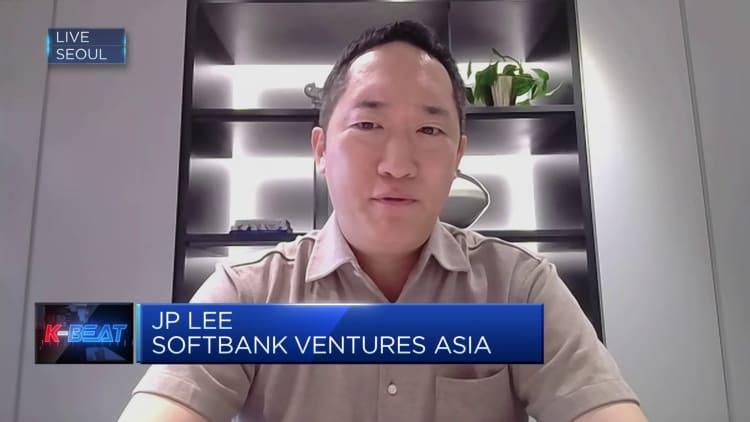[ad_1]
British Prime Minister Rishi Sunak speaks to the media during London Tech Week at the QEII centre on June 12, 2023.
Ian Vogler | Wpa Pool | Getty Images
British Prime Minister Rishi Sunak made a big pitch to the tech community Monday, casting the U.K. as a global center for artificial intelligence and regulation of the technology.
“We must act and act quickly if we want not only to retain our position as one of the world’s tech capitals, but to go even further and make this the best country in the world to start grow and invest in tech businesses,” Sunak said, addressing a crowded tech conference in London Monday.
“I feel a sense of urgency and responsibility to make sure that we see things because one of my five priorities is to grow our economy. And the more we innovate, the more we grow.”
“I want to make the U.K. not just the intellectual home but the geographical home of global AI safety regulation,” Sunak added.
The U.K. is trying to compete with global giants in the arena of AI, one of the most hyped areas of tech currently in the advent of OpenAI’s ChatGPT and other generative AI tools.
Separately, the country is also pitching itself as the “next Silicon Valley,” with Finance Minister Jeremy Hunt making several reforms to the country’s financial regulations to encourage more venture capital investment and listings from high-growth technology firms.
Much of the most commercially advanced work around the technology is originating from the U.S., with major companies such as Microsoft-backed OpenAI, and other tech giants, such as Google (which bought U.K.-based AI company DeepMind in 2014) and Meta, making huge investments in generative AI in particular.
However, the U.K. is trying to make measures of its own to be more of a leader in the world of AI. The government in March published a white paper detailing its plan for AI regulation, which sought to take a principles-based approach to the technology rather than proposing new tailored regulations.
Sunak last week announced the first global AI safety summit in the U.K. later this year, looking to make a bold commitment on Britain’s position in the global regulatory discourse surrounding the technology as officials in the U.S., European Union and beyond seek to get a handle on AI.

Last month, the CEOs of OpenAI, Google DeepMind and Anthropic made a visit to the U.K., speaking with the prime minister about their approach to ensuring safe development of AI. AI leaders are trying to convince officials that they are keeping safety in mind when creating advanced AI models, as
There is currently no concrete regulation for AI in any major developed nation. The European Union is seeking to change that with the EU AI Act, which lawmakers are due to vote on in Parliament later this week. But these are laws that are unlikely to come into force until well into the future.
The U.K. has seen some of its most decorated tech firms sour on the country as a place to begin a tech business, with the critical Cambridge-based chip design firm Arm opting to list in New York in favor of London earlier this year, and the CEO of Revolut saying he would “never list” in London citing an unfavorable tax regime and bureaucratic regulation.
Sunak defied naysayers about the U.K. technology prospects on Monday. In conversation with the CEO of Google DeepMind, Demis Hassabis, Sunak said that Britain is “already a great place to scale up a tech business.”
“Over the last decade, [there have been] more unicorns in this country than anywhere other than the U.S. and China. I think that’s a pretty good record and a good base for us to start from, but obviously we need to keep doing well, we need to keep pushing ourselves.”
“Something like half of all of our fastest-growing innovation businesses have a foreign-born founder, so that tells you you need a visa system that attracts the best and the brightest to the U.K. And I think we’ve got one.”
Hassabis, who recently was promoted to lead Google’s AI research efforts, said he has seen the culture around fostering entrepreneurship in the U.K. change over the years.
“When we started DeepMind back in 2010, things were very different then. I remember our first investors, who were U.S.-based, and we had to go to the U.S. to get our first investment, sort of suspicious of if you could build huge deep tech companies anywhere other than Silicon Valley.
“I think it is a lot easier to start and grow very difficult and very meaningful, the tech companies. So you know, it’s been it’s been great to see that I think there’s a huge opportunity to come here.”
WATCH: Can China’s ChatGPT clones give it an edge over the U.S. in an A.I. arms race?

[ad_2]

